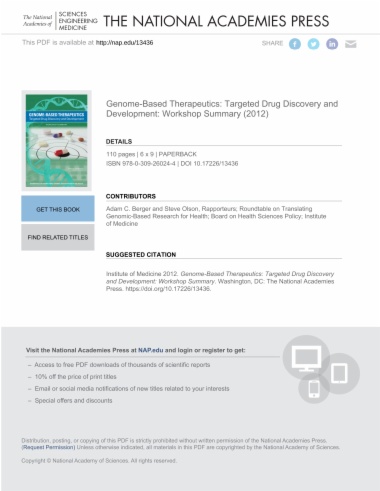

The number of new drug approvals has remained reasonably steady for the past 50 years at around 20 to 30 per year, while at the same time the total spending on health-related research and development has tripled since 1990. There are many suspected causes for this trend, including increases in regulatory barriers, the rising costs of scientific inquiry, a decrease in research and development efficiency, the downstream effects of patient expirations on investment, and the lack of production models that have successfully incorporated new technology. Regardless, this trajectory is not economically sustainable for the businesses involved, and, in response, many companies are turning toward collaborative models of drug development, whether with other industrial firms, academia, or government. Introducing greater efficiency and knowledge into these new models and aligning incentives among participants may help to reverse the trends highlighted above, while producing more effective drugs in the process.
Genome-Based Therapeutics explains that new technologies have the potential to open up avenues of development and to identify new drug targets to pursue. Specifically, improved validation of gene-disease associations through genomics research has the potential to revolutionize drug production and lower development costs. Genetic information has helped developers by increasing their understanding of the mechanisms of disease as well as individual patients' reactions to their medications. There is a need to identify the success factors for the various models that are being developed, whether they are industry-led, academia-led, or collaborations between the two.
Genome-Based Therapeutics summarizes a workshop that was held on March 21, 2012, titled New Paradigms in Drug Discovery: How Genomic Data Are Being Used to Revolutionize the Drug Discovery and Development Process. At this workshop the goal was to examine the general approaches being used to apply successes achieved so far, and the challenges ahead.